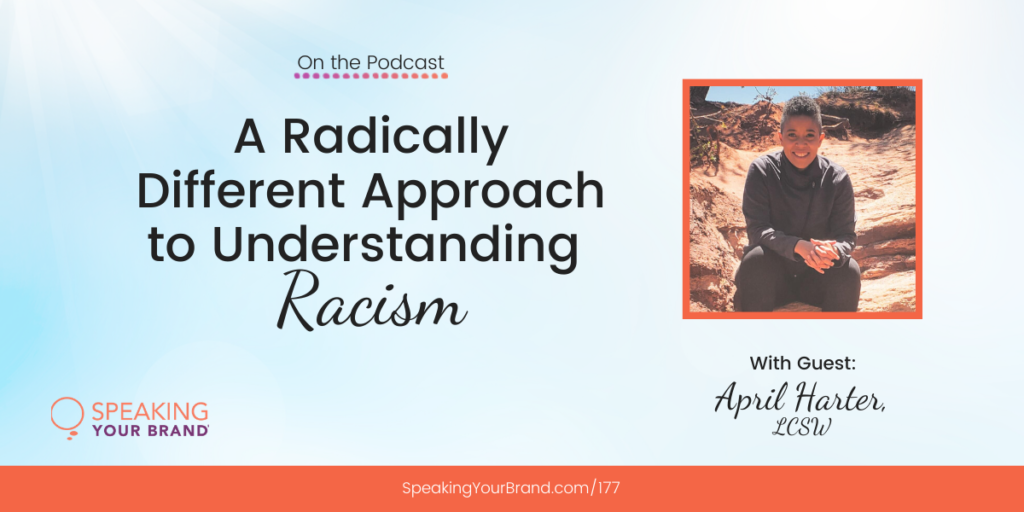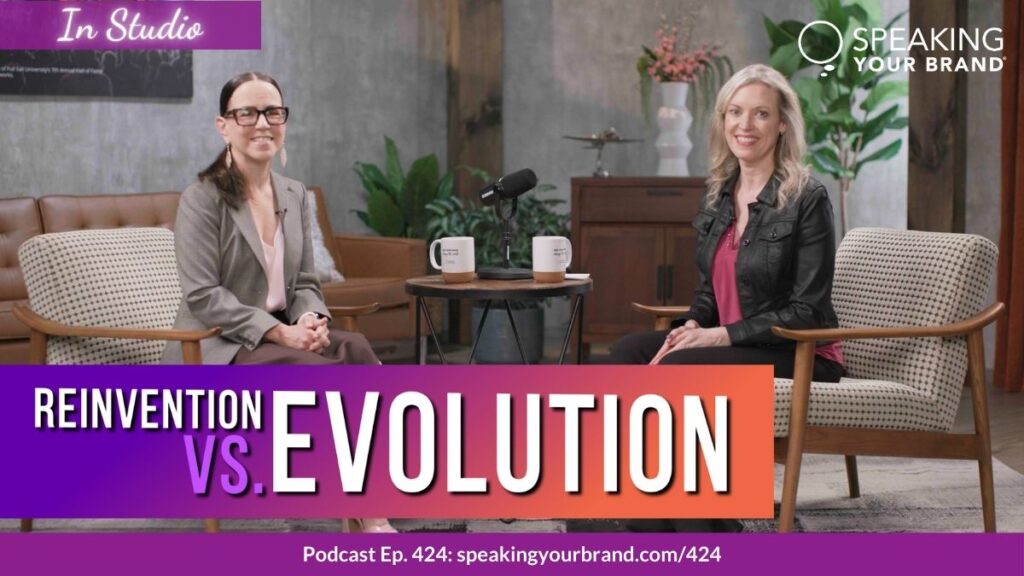Subscribe to the podcast!
We’ve been hearing and seeing a lot over the past few weeks about anti-racism education and the need for white people (like me) to learn about how deep systemic racism is embedded throughout our society and the actions we can take to combat racism and anti-Blackness.
This is a very different conversation about racism.
My guest is April Harter, who is a therapist and licensed clinical social worker and the founder of the Racism Recovery Center.
April has what I call a radically different approach to understanding racism.
She looks at it from a behavioral/psychological/personal level.
What she has found is that racism is rooted in childhood trauma/abuse/neglect and narcissism.
This is not exclusive to people who join white supremacist organizations like the KKK.
This is all of us who are white.
As I discovered from this conversation, I tend to be very cerebral and intellectual (from my academic background and my personality). I thus intellectualize my understanding of racism (which really is a defense mechanism) – and is not a substitute for the personal work I need to do.
As April says, activism is not a solution for dealing with our personal racism.
I invite you to listen to this conversation with an open mind and an open heart.
In this episode, April and I talk about:
- The two types of racism: institutional (history and the law) and personal (behavioral and psychological)
- The trauma, narcissism, and codependency behind racism (which results in hyper-vigilance and defensiveness)
- The performative allyship that we see on social media – and the connection to perfectionism, shame, and inauthenticity
- 95-98% of white people *haven’t* done their personal psychological racism work (which results in denial)
- Most white people don’t recognize the emotional neglect or abuse they experienced growing up (including perfectionism and over-achievement)
- White women saviorism and the connection to codependency in a patriarchal society
- Take action and do the work from a place of LOVE, not saviorism
- The stages of change: pre-contemplation, contemplation, preparation, action, maintenance, and relapse
- Activism and learning about racism tend to be a way to bypass the personal healing journey
About My Guest: April Harter, LCSW is a former medical social worker, where she provided counseling to her patients and their family members to help them cope with the trauma of medical emergencies in the state of Texas. She later moved to Colorado and started her private practice to serve QTPOC patients with a history of racial trauma. After having worked with QTPOC, she decided to help prevent racism in society by working with white clients as a coach using the Racist Signature Theory. Finally, she opened up the Racism Recovery Center to offer psychotherapy to white people in interracial families.
About Us: The Speaking Your Brand podcast is hosted by Carol Cox. At Speaking Your Brand, we help women entrepreneurs and professionals create their signature talks and gain more visibility to achieve their goals. Our mission is to get more women in positions of influence and power: on stages, in businesses, on boards, in the media, in politics, and in our communities. Check out our coaching programs at https://www.speakingyourbrand.com.
Links:
Show notes at https://www.speakingyourbrand.com/177
April’s website: http://www.racismrecoverycenter.com/
April’s Instagram: https://www.instagram.com/racismrecoverycenter/
April’s “Racism Recovery Podcast”: https://podcasts.apple.com/us/podcast/racism-recovery-podcast/id1507043474
Related Podcast Episodes:
- Episode 167: Creating a Sense of Belonging with Your Audience with Traci Baxley, Ed.D.
- Episode 175: The Work of Anti-Racism as White Women with Carol Cox and Diane Diaz
- Episode 176: Handling Triggers, Reactions, and Emotions in Ourselves and Others with Lara Currie







